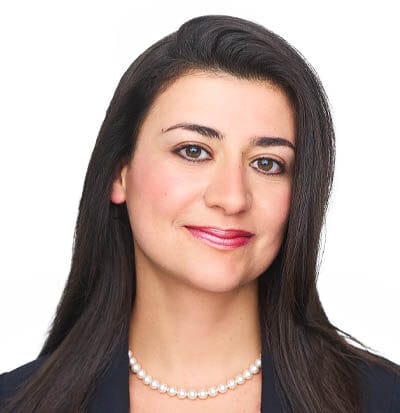By Robin N. Baydurcan
On January 10, 2017, the Industrial Property Code (“New Law”) went into effect in Turkey, replacing the previous law known as “Decree Law No. 556 for the Protection of Trademarks” (“Old Law”). The Old Law will continue to apply to all trademark applications filed before January 10th, whereas applications filed on or after January 10th will be assessed under the New Law.
The goals of the New Law are to unify the previously separate decrees pertaining to various forms of intellectual property, to comply with certain aspects of EU law (although Turkey is not presently a member of the EU), and to make the rules clearer and easier to understand.
Below are some key provisions of the New Law as it pertains to trademarks.
Office Name: The Turkish Patent Institute is now called the Turkish Patent and Trademark Office.
Registrable Signs: Under the Old Law, a mark had to be represented graphically in order to be registrable. The New Law, in line with EU law, provides that a mark merely must be “capable of being represented on the register in a manner which enables the competent authorities and the public to determine the clear and precise subject matter of the protection afforded to its proprietor.” Thus, for example, colors and sounds may now be registered as trademarks.
Consents Accepted: Under the Old Law, co-existence agreements and letters of consent were not accepted and were given no weight in overcoming citations against trademark applications. Under the New Law, co-existence agreements and letters of consents will guarantee acceptance in the event of a citation. Letters of consent must be notarized and must name the particulars and specifications of the prior mark and the applied-for mark.
Opposition Period: The opposition period has been reduced from three to two months. The Turkish Patent and Trademark Authority is expected to continue a practice adopted in 2016, by which its Bulletins are published twice per month. This means that within each month, there will be two opposition deadline cycles, and the deadlines cannot be extended under any circumstances. Keeping a close eye on Turkish watch notices is therefore particularly important, as there will be a continuous flow of publications and a shorter time frame to oppose.
Proof of Use: Similar to EU law, the New Law in Turkey provides that in an opposition, the applicant may request that the opposer prove use of the registrations relied upon in the opposition, to the extent those registrations are more than five years old. If the opposer cannot prove use, or cannot put forward a justifiable reason for non-use, the opposition will fail as to the goods/services for which use has not been shown. Importantly, this “proof-of-use defense” can also be raised in an infringement action. Thus, if a lawsuit is under consideration but the underlying rights are vulnerable to non-use cancellation, the petitioner should consider relying on reputation or other non-vulnerable registrations instead.
Non-use Cancellation Actions: Starting in January 2024, the Turkish Patent and Trademark Authority will hear non-use cancellation actions. Until then, such actions will continue to be in the IP courts. Under both the Old Law and the New Law, only courts may handle invalidation actions.
It is noted that the Turkish Constitutional Court on December 14, 2016 issued a decision striking down a provision of the Old Law (namely, Article 14 of the trademark decree) that allowed for non-use cancellation actions against trademarks not in use for five years starting from the registration date. Article 14 was struck down on the basis that under the Turkish Constitution, fundamental rights cannot be limited by decree, but only by law. The Constitutional Court thus ruled that a trademark—being a fundamental property right—cannot be cancelled for non-use based on a decree. The New Law, not being decree-based, fully allows for non-use actions, so all actions filed on or after January 10, 2017 are legally sound in constitutional terms. As for cases filed before January 10th and that are still pending, non-use petitioners are advised to contact their local counsel to ensure that their actions are not dismissed. Claims may need to be amended to include alternative bases for these actions. For any actions dismissed as a result of the Constitutional Court’s decision of December 14, 2016, it is expected that the appellate courts will take up the issue and hopefully allow those actions to continue, although the mechanics are uncertain at this time.
Opposition and Invalidation Grounds: Under the New Law, bad faith is now a separate ground for opposition and invalidation. Also, “well-known mark” has been re-introduced as a ground for opposition and invalidation; this ground had previously been stricken by the Constitutional Court. “Well-known mark” is not a ground for ex-officio rejection in Turkey at this time.
Mediation: In oppositions, the Turkish Patent and Trademark Authority will be authorized to invite the parties to mediate under the New Law.
Registration Defense: The New Law provides that a trademark registrant cannot assert its registration as a defense to an infringement action filed by a prior-right holder. Thus, a registration will no longer serve as a defense when a prior registration for the same or a confusingly similar mark exists.
Acquiescence Defense: Under the New Law, the plaintiff in an invalidation action will not be permitted to assert its earlier mark if the plaintiff is or should have been aware of the defendant’s use of the junior mark during the five years preceding the action but did not object to that use. There is an exception if bad faith on the part of the defendant is shown.
Exhaustion: Turkey will now be governed by the doctrine of international exhaustion of rights rather than national exhaustion. Thus, under Turkish law, a trademark-bearing product circulated abroad by or with the permission of the trademark owner may legally be circulated in Turkey as well. Put another way, the importation into Turkey of a product sold in a foreign country with the authorization of the trademark owner cannot be prevented by the trademark owner.

















































